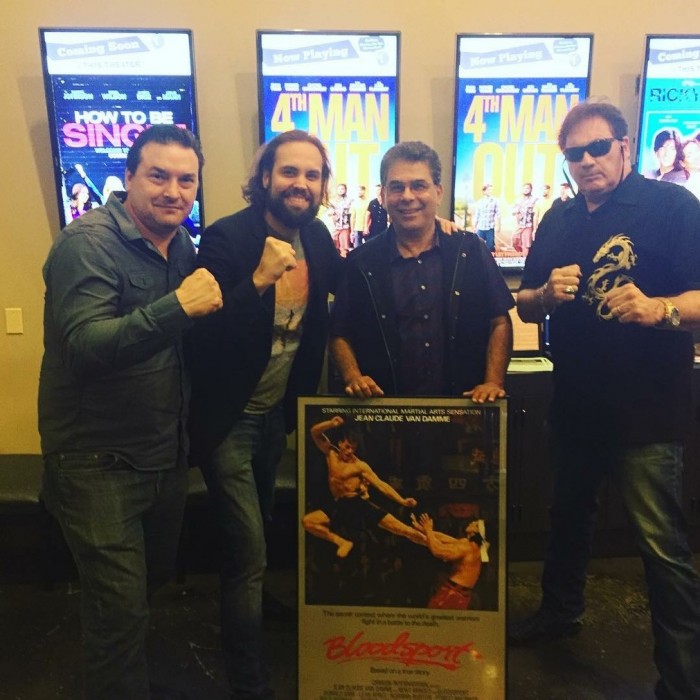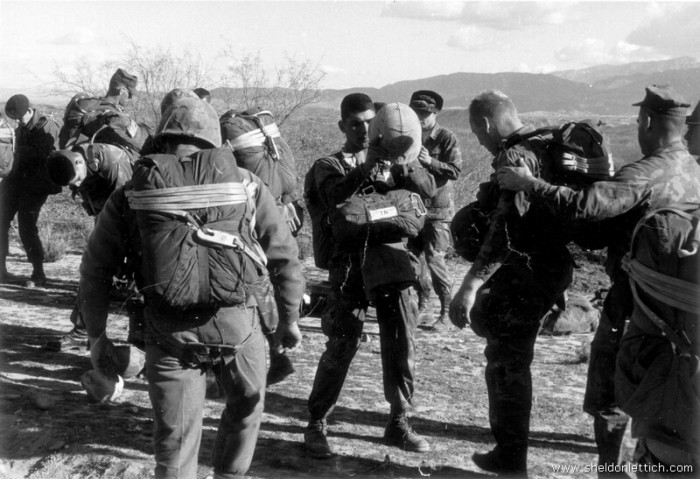How Did This Get Made: A Conversation With Sheldon Lettich, Screenwriter Of Bloodsport
Shortly after running our last piece, How Did This Get Made: A Conversation with Frank Dux, the Real-Life Inspiration for Bloodsport, I was put in touch with Sheldon Lettich. This was significant not only because he wrote the screenplay for Bloodsport, but also because Dux had said some unflattering things about the writer.
So when I finally connected with Lettich, I worried that there might be some not-so-flattering words headed my way. But to my pleasant surprise, Lettich was a complete gentleman. And when I told about him the purpose of this How Did This Get Made series—to investigate how movies got made, and the careers of those involved—he was happy to clear up any misconceptions and provide additional insights into the making of Bloodsport, his two decades of collaboration with Jean-Claude Van Damme and what it takes to write a badass, blow-em-up action film.
How Did This Get Made is a companion to the podcast How Did This Get Made with Paul Scheer, Jason Mantzoukas and June Diane Raphael which focuses on movies. This regular feature is written by Blake J. Harris, who you might know as the writer of the book Console Wars, soon to be a motion picture produced by Seth Rogen and Evan Goldberg. You can listen to the Bloodsport edition of the HDTGM podcast here. What follows is a conversation with Sheldon Lettich, who was the screenwriter of the movie Bloodsport. Please note as always our subject's opinions, recollections and claims are his own, and do not reflect the views of the author or this publication.
Bloodsport Oral History Part Two
Synopsis: U.S. Army Captain Frank Dux (Jean-Claude Van Damme), who had been trained as a boy by the legendary Ninjutsu master Senzo Tanaka, decides to honor his mentor by taking the place of Tanaka's dead son in an illegal, no-holds-barred martial arts tournament called the "Kumite."Tagline: The True Story of an American Ninja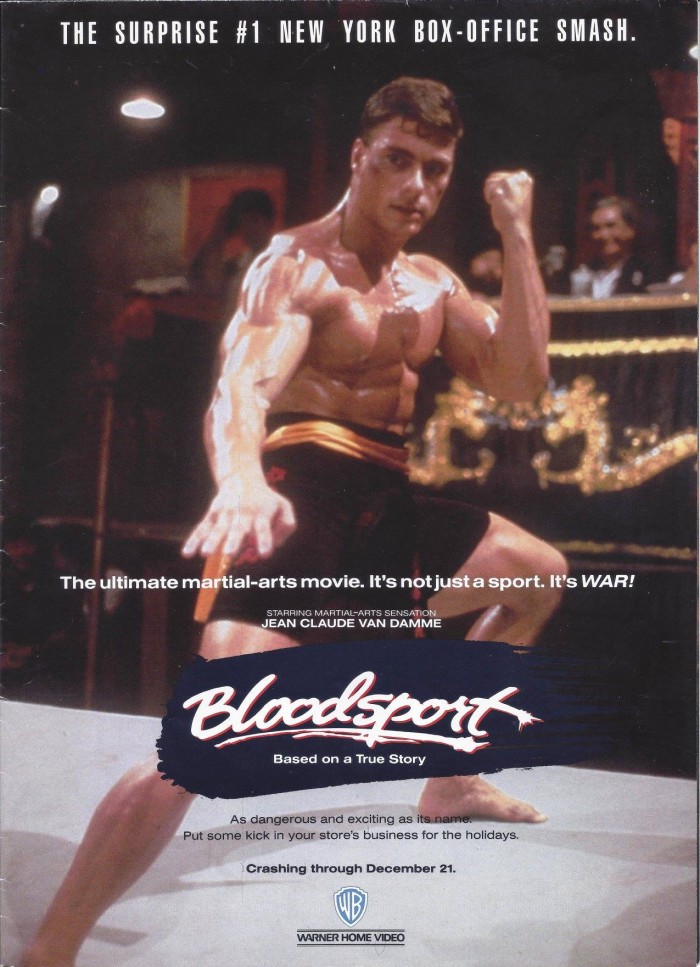
"All I request," Lettich started off by saying, "is that we try to keep discussion about Frank Dux to a minimum. I don't really want to give this guy a platform for more publicity because that's what he's always looking for."
Not looking to find myself embroiled in the middle of a he-said, she-said war of words, I happily agreed to this request.
"But I will say this," Lettich continued. "The fact that Frank hasn't been involved with any movie since 1994 says something doesn't it? I think Jean-Claude and I have done just fine without 'riding his coattails,' haven't we?"
What follows is the rest of our conversation...
Part 1: Vietnam Veterans & Vetting out the Phonies
Blake Harris: Given that you were mentioned several times in my interview with Frank, I can't help but start off by asking how surprised and/or frustrated you were to see the things he said?Sheldon Lettich: Frustrated? A little bit. Surprised? Sadly not at all. He's been carrying on like that for years and years. But what's crazy is almost everything he says in that interview is an outright lie or a distortion.Blake Harris: I've interviewed a lot of people in my time—including a lot of people I believe were trying to sell me on lies—but I never got the sense from Frank that he was trying to put one over on me. I genuinely believed that he believes everything he told me.Sheldon Lettich: I'd tend to agree with you on that. Because I think he's got a Walter Mitty syndrome. He basically makes up these stories, casts himself as the leading character and somehow convinces himself that he really did this stuff. It's a psychological issue that, believe it or not, happens more than you would think. Especially when it comes to the military. You know, where people go around wearing medals and talking about their fictional war exploits.Blake Harris: That actually makes for a good, non-Frank-related jumping off point. You spent almost four years in the U.S. Marine Corps, is that correct?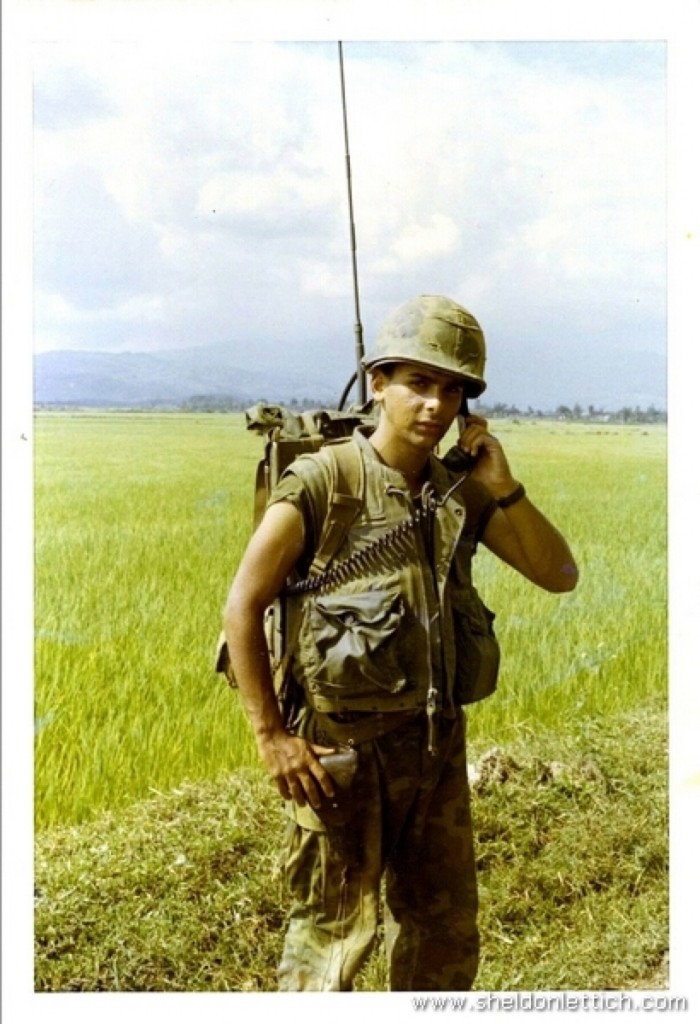 Sheldon Lettich: Yeah, I served as a radio operator in South Vietnam and then later with 1st Force Reconnaissance Company based at Camp Pendleton, California.Blake Harris: So how did you go about making that enormous transition from wartime soldier to Hollywood writer?Sheldon Lettich: Well, surprisingly enough, my first success came in the theater. I'd been writing screenplays and thinking about films, but what happened was an actor friend mine was reading Drama-Logue and saw an ad from this guy John Di Fusco looking for actors who were also Vietnam veterans. This is like 1979 and he wanted to put together some kind of theatrical piece about Vietnam veterans. I wasn't an actor, but I was a writer, so I got in touch with John and we hit it off. Showed him a few screenplays that I had written and we decided to work together on this. I was not an actor, so it was decided that I would be the writer member of this group. And I actually helped John do the casting. In fact we did the casting at my apartment. This was all very, very low budget. So we had a number of people come to my apartment; John would test them out for their acting abilities and we would also try to determine if they were for real.Blake Harris: In what sense?Sheldon Lettich: Oh, I just meant we'd try to determine if they were really Vietnam veterans. If they'd actually served. We encountered a few phonies, but eventually we put together a core group. Then we started meeting on a regular basis over at the VA hospital in Westwood. John had convinced somebody there that doing this play was a good idea for veterans. That it would be helpful and therapeutic.Blake Harris: And was it? For you, I mean.Sheldon Lettich: Oh yeah, oh absolutely. It was definitely a therapeutic experience for everyone involved with the play. In fact, we explored Post Traumatic Stress in the play, but the term PTSD had not even been coined yet. We were calling it "Delayed Stress." I wasn't going through anything like that myself, but it's therapeutic if you're able to recreate something that was an important part of your life and find a way to transmit it to other people. You allow other people just a little glimpse into what that experience was like and to feel it themselves. So the play was groundbreaking in some ways. There had been a few other plays dealing with the military and Vietnam at the time, but they weren't written by those who had actually been there. And this felt very personal because the guys that were up on stage for those initial performances were pretty much playing themselves in many respects.
Sheldon Lettich: Yeah, I served as a radio operator in South Vietnam and then later with 1st Force Reconnaissance Company based at Camp Pendleton, California.Blake Harris: So how did you go about making that enormous transition from wartime soldier to Hollywood writer?Sheldon Lettich: Well, surprisingly enough, my first success came in the theater. I'd been writing screenplays and thinking about films, but what happened was an actor friend mine was reading Drama-Logue and saw an ad from this guy John Di Fusco looking for actors who were also Vietnam veterans. This is like 1979 and he wanted to put together some kind of theatrical piece about Vietnam veterans. I wasn't an actor, but I was a writer, so I got in touch with John and we hit it off. Showed him a few screenplays that I had written and we decided to work together on this. I was not an actor, so it was decided that I would be the writer member of this group. And I actually helped John do the casting. In fact we did the casting at my apartment. This was all very, very low budget. So we had a number of people come to my apartment; John would test them out for their acting abilities and we would also try to determine if they were for real.Blake Harris: In what sense?Sheldon Lettich: Oh, I just meant we'd try to determine if they were really Vietnam veterans. If they'd actually served. We encountered a few phonies, but eventually we put together a core group. Then we started meeting on a regular basis over at the VA hospital in Westwood. John had convinced somebody there that doing this play was a good idea for veterans. That it would be helpful and therapeutic.Blake Harris: And was it? For you, I mean.Sheldon Lettich: Oh yeah, oh absolutely. It was definitely a therapeutic experience for everyone involved with the play. In fact, we explored Post Traumatic Stress in the play, but the term PTSD had not even been coined yet. We were calling it "Delayed Stress." I wasn't going through anything like that myself, but it's therapeutic if you're able to recreate something that was an important part of your life and find a way to transmit it to other people. You allow other people just a little glimpse into what that experience was like and to feel it themselves. So the play was groundbreaking in some ways. There had been a few other plays dealing with the military and Vietnam at the time, but they weren't written by those who had actually been there. And this felt very personal because the guys that were up on stage for those initial performances were pretty much playing themselves in many respects.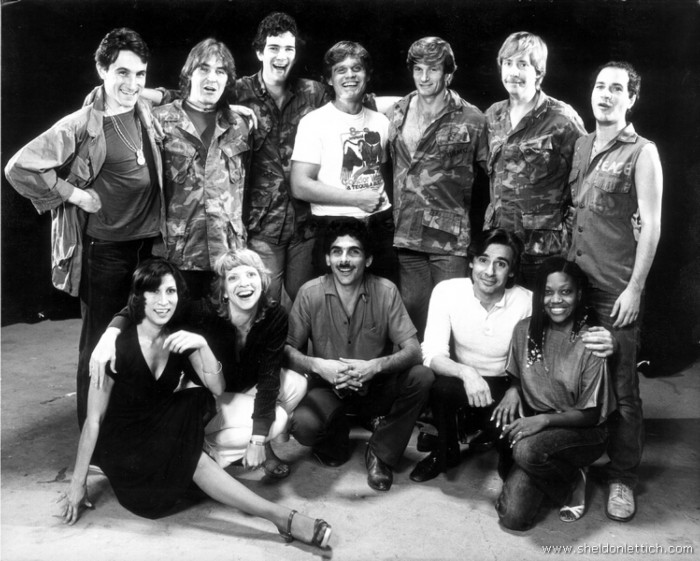 Tracers, as the play would later be titled, was first presented as a work-in-progress performance piece on July 4, 1980. Three months later, it formally opened at the Odyssey Theatre in Los Angeles to rave reviews. It was awarded the Drama-Logue Critics' Award for Direction and the Los Angeles Drama Critics' Award for Ensemble Performance. Sheldon Lettich: We got some amazing reviews and it just turned into a little bit of a mini-phenomenon. Joseph Papp heard about it, so he brought the show to the Public Theatre in New York. And then Gary Sinese saw the play in New York and he wanted to put it on in Chicago. So he brought Tracers to the Steppenwolf Theatre and he directed it. This thing, it had legs, and started traveling around the world (London, Australia, etc.).Blake Harris: That's great. And so how did you swivel from that experience into something in the film world?Sheldon Lettich: This will sound like it's coming completely out of left field, but the first time I actually got paid to write a script was a horror film that involved voodoo.Blake Harris: Yeah, I think that qualifies as "left field" status.Sheldon Lettich: [laughing] What happened was I had met [Blaxploitation star] Leon Isaac Kennedy, who wanted to option a script of mine. Nothing happened with that, but then he started paying me a little bit to write some scripts for him.Blake Harris: Did any of those get made?Sheldon Lettich: We got really close with one. A college football comedy, of all things, that took place at a black college in Texas during the 60s.Blake Harris: I think that also earns "left field" status.Sheldon Lettich: [laughing] Maybe. A lot of it was based on the recollections of my friend Kurt Taylor, who I wrote the script with. Kurt had played football at Prairie View College in the 60's. And Leon was going to star in the movie, which we called The White House All Stars with the "White House" being a frat house at this college where all the football players lived. So it was lot of college hijinks, trying to get girls and all that stuff. And we actually got hired by Motown to write this script! That was really my very first entry into the Writer's Guild.Blake Harris: Moving up the ranks...Sheldon Lettich: Yeah, and around this time I wrote a Vietnam screenplay that got me my first agent. It was called Firebase and was basically Zulu in Vietnam; about a small disparate group forced together on a Firebase that gets attacked by an overwhelming number of North Vietnamese. Took me a long, long time to write that script. And, like I said, it got me my first agent, a guy named Harold Moskowitz...[starts laughing] who, a little while later, was looking for help with another one of his clients. "He's written this Vietnam novel," my agent said, "that the novel's way too long and overwritten. But if we can cut it down, I think we can sell this novel."Blake Harris: Can I guess that the novel was The Last Rainbow [by Frank Dux]?Sheldon Lettich: Yup. That's how Frank and I met.Blake Harris: Do you remember what your first meeting was like?Sheldon Lettich: We hit it off right away. I don't remember in detail what our first interaction was like, but we just kind of hit it off.Blake Harris: Was it weird for you at all, as a Vietnam veteran, to be working on a book about the war that was written by someone who hadn't been there?Sheldon Lettich: Well, I didn't know that at the time. Look, I take people at face value because I'm not a bulls***ter. And if somebody tells me they were in Vietnam, and in the Marine Corps, I'll believe them. He knew enough buzzwords to make me think he's the real deal, he's probably been over there. And that relationship led to other things down the road, as you know, but meanwhile my script Firebase was going around. There were a number of people who really liked it. And one of those people was Sylvester Stallone, who had put the word out that he was looking for someone to help him write Rambo III. So my agent sent him Firebase and he responded very enthusiastically. He liked the authenticity in it and he'd heard about Tracers also. And that's how I ended up co-writing Rambo III with him. You gotta admire the fact that he wanted to get a real Vietnam vet working on the script with him.
Tracers, as the play would later be titled, was first presented as a work-in-progress performance piece on July 4, 1980. Three months later, it formally opened at the Odyssey Theatre in Los Angeles to rave reviews. It was awarded the Drama-Logue Critics' Award for Direction and the Los Angeles Drama Critics' Award for Ensemble Performance. Sheldon Lettich: We got some amazing reviews and it just turned into a little bit of a mini-phenomenon. Joseph Papp heard about it, so he brought the show to the Public Theatre in New York. And then Gary Sinese saw the play in New York and he wanted to put it on in Chicago. So he brought Tracers to the Steppenwolf Theatre and he directed it. This thing, it had legs, and started traveling around the world (London, Australia, etc.).Blake Harris: That's great. And so how did you swivel from that experience into something in the film world?Sheldon Lettich: This will sound like it's coming completely out of left field, but the first time I actually got paid to write a script was a horror film that involved voodoo.Blake Harris: Yeah, I think that qualifies as "left field" status.Sheldon Lettich: [laughing] What happened was I had met [Blaxploitation star] Leon Isaac Kennedy, who wanted to option a script of mine. Nothing happened with that, but then he started paying me a little bit to write some scripts for him.Blake Harris: Did any of those get made?Sheldon Lettich: We got really close with one. A college football comedy, of all things, that took place at a black college in Texas during the 60s.Blake Harris: I think that also earns "left field" status.Sheldon Lettich: [laughing] Maybe. A lot of it was based on the recollections of my friend Kurt Taylor, who I wrote the script with. Kurt had played football at Prairie View College in the 60's. And Leon was going to star in the movie, which we called The White House All Stars with the "White House" being a frat house at this college where all the football players lived. So it was lot of college hijinks, trying to get girls and all that stuff. And we actually got hired by Motown to write this script! That was really my very first entry into the Writer's Guild.Blake Harris: Moving up the ranks...Sheldon Lettich: Yeah, and around this time I wrote a Vietnam screenplay that got me my first agent. It was called Firebase and was basically Zulu in Vietnam; about a small disparate group forced together on a Firebase that gets attacked by an overwhelming number of North Vietnamese. Took me a long, long time to write that script. And, like I said, it got me my first agent, a guy named Harold Moskowitz...[starts laughing] who, a little while later, was looking for help with another one of his clients. "He's written this Vietnam novel," my agent said, "that the novel's way too long and overwritten. But if we can cut it down, I think we can sell this novel."Blake Harris: Can I guess that the novel was The Last Rainbow [by Frank Dux]?Sheldon Lettich: Yup. That's how Frank and I met.Blake Harris: Do you remember what your first meeting was like?Sheldon Lettich: We hit it off right away. I don't remember in detail what our first interaction was like, but we just kind of hit it off.Blake Harris: Was it weird for you at all, as a Vietnam veteran, to be working on a book about the war that was written by someone who hadn't been there?Sheldon Lettich: Well, I didn't know that at the time. Look, I take people at face value because I'm not a bulls***ter. And if somebody tells me they were in Vietnam, and in the Marine Corps, I'll believe them. He knew enough buzzwords to make me think he's the real deal, he's probably been over there. And that relationship led to other things down the road, as you know, but meanwhile my script Firebase was going around. There were a number of people who really liked it. And one of those people was Sylvester Stallone, who had put the word out that he was looking for someone to help him write Rambo III. So my agent sent him Firebase and he responded very enthusiastically. He liked the authenticity in it and he'd heard about Tracers also. And that's how I ended up co-writing Rambo III with him. You gotta admire the fact that he wanted to get a real Vietnam vet working on the script with him.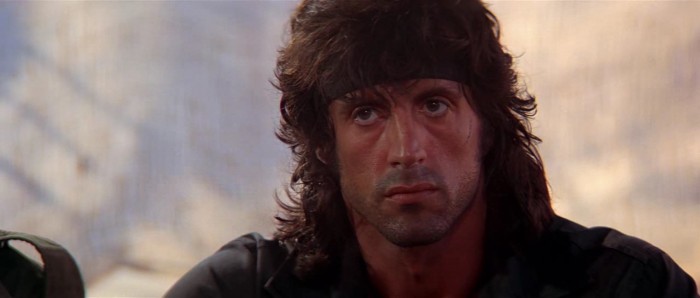
Part 2: The Baddest Motherf***ers in the World
Blake Harris: What was the scripting process like for Rambo III, working with Stallone?Sheldon Lettich: He and I were pretty much on the same wavelength for that. Because my idea for Rambo III was: well, there's only one place Rambo could go...Afghanistan. And Stallone felt the same way. I showed him pictures of this ancient fortress on a hilltop that the Russians had converted, so that became the basis for it. One of the only places where we initially differed was with the entry point. Stallone's original idea was that [Colonel Sam] Trautman comes to Rambo and says something like: hey, I got a mission for you in Afghanistan. And Rambo says [putting on a thick Stallone impression]: let me just go get my gear. "But Sly," I said, "it really wouldn't work that way because one thing that's been established with Rambo is that he's the baddest motherf***er in the world, but he doesn't want to fight. He wants to find a more peaceful path. So I suggested a version where Rambo tells Trautman, "Sorry, Colonel, I fought my war. It's not something that I'm interested in, but good luck." And then Troutman gets captured by the Russians and Rambo's feeling guilt because he let his buddy down. So he goes there on his own to rescue Troutman, and that pretty much became the movie.Blake Harris: That's a good point. Rambo was always a reluctant badass.Sheldon Lettich: Yeah, you've really gotta push him to fight. You've gotta kidnap his friend. You've gotta [in a dramatic macho voice] PUSH...HIM...TOO...FAR. [laughing] Those old 80s trailers, that's what they'd say over and over again. "He was a peaceful accountant...until he was PUSHED...TOO...FAR!" Pushed too far—and generally all three words would appear on screen—that was big in the 80s. And that's one of the things that were attractive about Rambo so that's what we did with that script.Blake Harris: And what was it like working with Rambo himself?Sheldon Lettich: I was just so honored. Look, Stallone was the biggest star in the world at the time and to even have a meeting with him was, to me, a huge honor. I don't think Stallone has ever been given his due by movie critics. I don't know if the word "genius" is maybe taking it too high, but this is a very smart creative guy who is very much underappreciated. Plus the guy was just an idol of mine. And he was an idol of Jean-Claude's too.Blake Harris: Yeah? Jean-Claude was a big Stallone fan?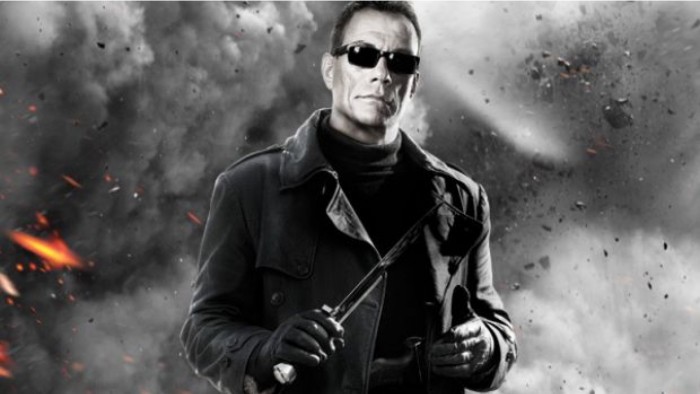 Sheldon Lettich: Still is. You know, Jean-Claude was totally overwhelmed when he got to work with Stallone on Expendables 2. Because for years he would turn down roles if his character had to be defeated at the end. If he had to be the bad guy and killed by the protagonist. Like, very famously, he turned down Demolition Man. It was offered to him and Seagal. And the two of them, they didn't talk about it, but they'd basically bicker through their agents because neither one wanted to be the criminal who gets killed at the end. Both of them wanted to be the cop.Blake Harris: That's so funny (though it makes sense).Sheldon Lettich: It just couldn't be worked out so the project fell by the wayside until they got Stallone and Wesley Snipes to be in it. But the point I was leading up to was that Jean-Claude just wouldn't be the villain who gets killed at the end of a movie. But the only guy in the world who could kill Jean-Claude with his permission is Sylvester Stallone. If it's Stallone: no problem, he can kill me on screen at the end.Blake Harris: The ultimate compliment...Sheldon Lettich: Ha, yes.Blake Harris: Speaking of Jean-Claude, I imagine that you first met him around this time. How did that happen? Or actually, a better question: how did Bloodsport first come together?Sheldon Lettich: [producer] Mark DiSalle invited me to lunch. He said, "Movies often come in cycles and there hasn't been a martial arts film in a while; I think that cycle is going to come back soon." So he pitched me the story for Kickboxer and I said, "Well, if you're looking for a martial arts film, I've got one of my own that I think you might like...Bloodsport." And the story there, which I've told many times, came from Frank telling me about his exploits. He used to tell everybody he was a ninja; I think he still maintains he was a ninja and took his training from this guy named Tanaka. But he was telling me about this tournament that he participated in where all the best fighters in the world showed up. And it was no-holds-barred, it'd very brutal and bloody, so it was called "Bloodsport." When I heard that name, it was like bells started ringing. Wow. Bloodsport. I said to Frank, "That's a great title for a movie." Everything you've just been telling me about this Kumite, that's a great idea for a movie. And, at that lunch, Mark agreed and hired me to write the script for Bloodsport.
Sheldon Lettich: Still is. You know, Jean-Claude was totally overwhelmed when he got to work with Stallone on Expendables 2. Because for years he would turn down roles if his character had to be defeated at the end. If he had to be the bad guy and killed by the protagonist. Like, very famously, he turned down Demolition Man. It was offered to him and Seagal. And the two of them, they didn't talk about it, but they'd basically bicker through their agents because neither one wanted to be the criminal who gets killed at the end. Both of them wanted to be the cop.Blake Harris: That's so funny (though it makes sense).Sheldon Lettich: It just couldn't be worked out so the project fell by the wayside until they got Stallone and Wesley Snipes to be in it. But the point I was leading up to was that Jean-Claude just wouldn't be the villain who gets killed at the end of a movie. But the only guy in the world who could kill Jean-Claude with his permission is Sylvester Stallone. If it's Stallone: no problem, he can kill me on screen at the end.Blake Harris: The ultimate compliment...Sheldon Lettich: Ha, yes.Blake Harris: Speaking of Jean-Claude, I imagine that you first met him around this time. How did that happen? Or actually, a better question: how did Bloodsport first come together?Sheldon Lettich: [producer] Mark DiSalle invited me to lunch. He said, "Movies often come in cycles and there hasn't been a martial arts film in a while; I think that cycle is going to come back soon." So he pitched me the story for Kickboxer and I said, "Well, if you're looking for a martial arts film, I've got one of my own that I think you might like...Bloodsport." And the story there, which I've told many times, came from Frank telling me about his exploits. He used to tell everybody he was a ninja; I think he still maintains he was a ninja and took his training from this guy named Tanaka. But he was telling me about this tournament that he participated in where all the best fighters in the world showed up. And it was no-holds-barred, it'd very brutal and bloody, so it was called "Bloodsport." When I heard that name, it was like bells started ringing. Wow. Bloodsport. I said to Frank, "That's a great title for a movie." Everything you've just been telling me about this Kumite, that's a great idea for a movie. And, at that lunch, Mark agreed and hired me to write the script for Bloodsport.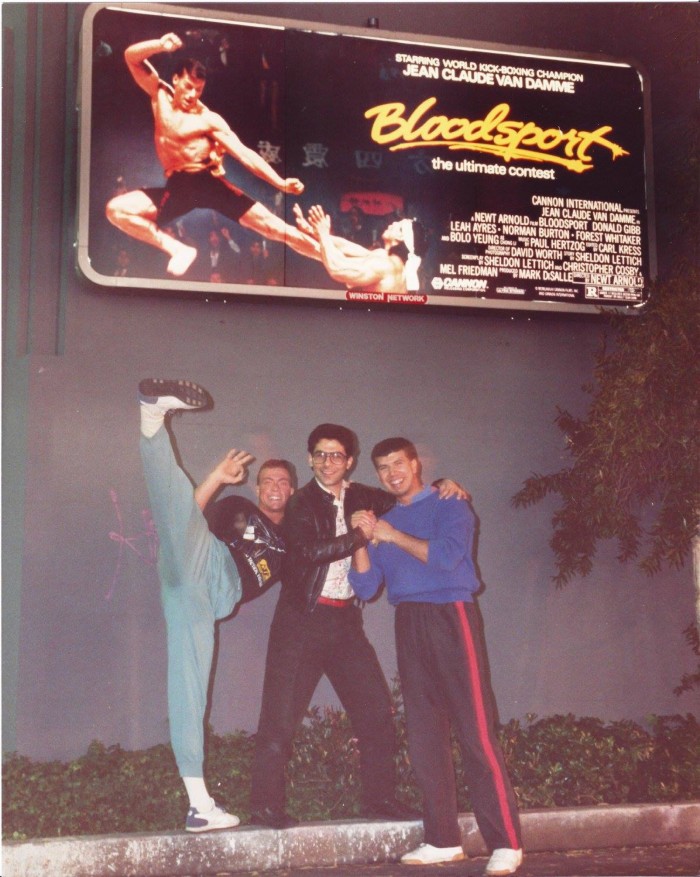 Blake Harris: Frank mentioned he already had a script? Enter the Ninja?Sheldon Lettich: No, there was no script prior to the "Bloodsport" script. Frank and I did write a couple of scripts together, and he received credit on both of them. Neither of them was about a martial arts tournament, and neither of them was ever produced. We even made a movie together, my 16mm short Firefight, which I gave him a major role in. All of this was prior to Bloodsport. Now, Frank did contribute a number of ideas to the Bloodsport script, but he claimed these were "life events" that actually happened to him, not fiction. His contract was not for writing, it was for use of his name and a portion of his "real-life story." Only the part relating to the Kumite because he was going to hang on to the rest of his rights for the rest of his "exploits" for other movies. But Mark had permission to use his name and to basically say that this was a real story. And, look, in the mid-80's, something like that sounded real intriguing. A secret martial arts contest? Oh yeah! Nowadays it's all kind of cliché. But back then it sounded really cool.Blake Harris: Well you started that cliché!Sheldon Lettich: [laughter] Back then, to say "based on a true story" was something that intrigued, and I think it particularly intrigued Menahem Golan. I wrote the script, got paid a small fee and I can't remember how much time passed—probably less than a year—and via another guy named Lou Horwitz—a financer who, I believe, did gap-financing at the time—Lou took it to Cannon. They liked the idea, liked the script, and decided to go ahead and do it as a low-budget movie. All that was missing was an actor to play Frank Dux. A number of ideas were thrown out. I don't know if they ever approached Chuck Norris, but Chuck didn't seem right. He was a little too old at the time. I don't know if they ever approached Michael Dudikoff, but basically the producers were in a quandary as to who to cast. And then there was the famous meeting between Jean-Claude and Menahem on La Cienega Boulevard. I believe that story is 100% true, because Michel Qissi was with him and he told me the same story. And they've never wavered from that.Blake Harris: The kick?Sheldon Lettich: Yeah. Jean-Claude saw Menahem on the street, did a U-Turn and said, "Hey Menahem, remember me? Jean-Claude Van Damme." And then he did a kick that missed his face by like two inches. Well, Menahem just happened to be searching for an actor to play the lead in Bloodsport so he told Jean-Claude to come by his office the following morning and gave him a copy of the script.Blake Harris: Right, right.Sheldon Lettich: But the point we're getting towards is my first meeting with Jean-Claude. And I remember Mark telling us, "Menahem is thinking of casting this guy... Gene Claude Van Damme. And he's in this movie called No Retreat, No Surrender. Why don't you go check it out?" So Frank and I go to a theater and we were both blown away by Jean-Claude. We thought he was f***ing great. We gave our enthusiastic thumbs up and the next thing I know they're in pre-production and off to Hong Kong. I still had not yet met Jean-Claude at this time. But they called me from Hong Kong—Frank and Jean-Claude—lamenting the fact that "Mark DiSalle was messing up the script." They didn't know what to do, but they thought they'd give me a call. So Frank put me on the phone with Jean-Claude and that was the first time I ever spoke to him. We had a nice conversation and promised each other to meet up when he was back in LA. Let's meet face to face. And as soon as he was back in LA, he gave me a call and came over to my apartment in Park La Brea. Brought his wife with him and we just hit it off, right from the getgo. We just became friends almost immediately. And his wife and my wife became even closer friends. They were both pregnant at the same time. So these kids kind of grew up together. And I was writing for Stallone at the time and I actually asked Jean-Claude for some help with some of the dialogue for a script I was working on.Blake Harris: I imagine that this was during that time—about two years or so—when Bloodsport just kind of sat there on the shelves. Why was that the case?Sheldon Lettich: Because Menahem thought it was terrible. Oh man, he f***ing hated that movie.
Blake Harris: Frank mentioned he already had a script? Enter the Ninja?Sheldon Lettich: No, there was no script prior to the "Bloodsport" script. Frank and I did write a couple of scripts together, and he received credit on both of them. Neither of them was about a martial arts tournament, and neither of them was ever produced. We even made a movie together, my 16mm short Firefight, which I gave him a major role in. All of this was prior to Bloodsport. Now, Frank did contribute a number of ideas to the Bloodsport script, but he claimed these were "life events" that actually happened to him, not fiction. His contract was not for writing, it was for use of his name and a portion of his "real-life story." Only the part relating to the Kumite because he was going to hang on to the rest of his rights for the rest of his "exploits" for other movies. But Mark had permission to use his name and to basically say that this was a real story. And, look, in the mid-80's, something like that sounded real intriguing. A secret martial arts contest? Oh yeah! Nowadays it's all kind of cliché. But back then it sounded really cool.Blake Harris: Well you started that cliché!Sheldon Lettich: [laughter] Back then, to say "based on a true story" was something that intrigued, and I think it particularly intrigued Menahem Golan. I wrote the script, got paid a small fee and I can't remember how much time passed—probably less than a year—and via another guy named Lou Horwitz—a financer who, I believe, did gap-financing at the time—Lou took it to Cannon. They liked the idea, liked the script, and decided to go ahead and do it as a low-budget movie. All that was missing was an actor to play Frank Dux. A number of ideas were thrown out. I don't know if they ever approached Chuck Norris, but Chuck didn't seem right. He was a little too old at the time. I don't know if they ever approached Michael Dudikoff, but basically the producers were in a quandary as to who to cast. And then there was the famous meeting between Jean-Claude and Menahem on La Cienega Boulevard. I believe that story is 100% true, because Michel Qissi was with him and he told me the same story. And they've never wavered from that.Blake Harris: The kick?Sheldon Lettich: Yeah. Jean-Claude saw Menahem on the street, did a U-Turn and said, "Hey Menahem, remember me? Jean-Claude Van Damme." And then he did a kick that missed his face by like two inches. Well, Menahem just happened to be searching for an actor to play the lead in Bloodsport so he told Jean-Claude to come by his office the following morning and gave him a copy of the script.Blake Harris: Right, right.Sheldon Lettich: But the point we're getting towards is my first meeting with Jean-Claude. And I remember Mark telling us, "Menahem is thinking of casting this guy... Gene Claude Van Damme. And he's in this movie called No Retreat, No Surrender. Why don't you go check it out?" So Frank and I go to a theater and we were both blown away by Jean-Claude. We thought he was f***ing great. We gave our enthusiastic thumbs up and the next thing I know they're in pre-production and off to Hong Kong. I still had not yet met Jean-Claude at this time. But they called me from Hong Kong—Frank and Jean-Claude—lamenting the fact that "Mark DiSalle was messing up the script." They didn't know what to do, but they thought they'd give me a call. So Frank put me on the phone with Jean-Claude and that was the first time I ever spoke to him. We had a nice conversation and promised each other to meet up when he was back in LA. Let's meet face to face. And as soon as he was back in LA, he gave me a call and came over to my apartment in Park La Brea. Brought his wife with him and we just hit it off, right from the getgo. We just became friends almost immediately. And his wife and my wife became even closer friends. They were both pregnant at the same time. So these kids kind of grew up together. And I was writing for Stallone at the time and I actually asked Jean-Claude for some help with some of the dialogue for a script I was working on.Blake Harris: I imagine that this was during that time—about two years or so—when Bloodsport just kind of sat there on the shelves. Why was that the case?Sheldon Lettich: Because Menahem thought it was terrible. Oh man, he f***ing hated that movie.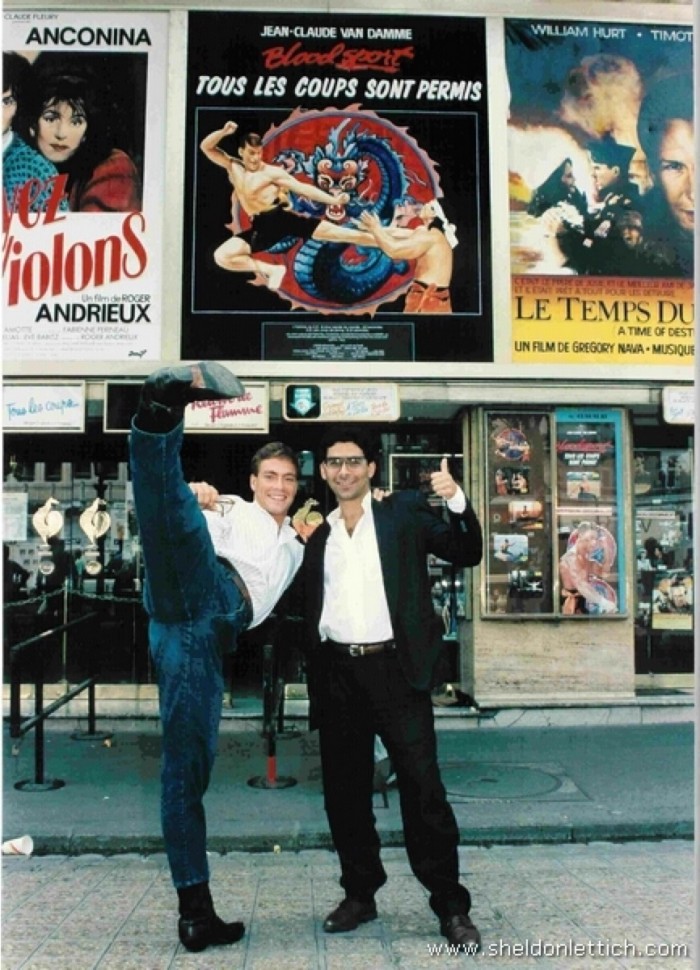
Part 3: Poison
Sheldon Lettich: In Menahem's defense, I saw the first cut—we all the saw first cut—and it was really bad. But Menahem had an in-house fixer named Michael J. Duthie, a really good editor, and he basically re-worked the movie. Then Jean-Claude came in and worked with Michael on the fight scenes, re-working those. And Jean-Claude's got a really good sense of how a fight scene should be edited. He's a real talent when it comes to that. So he re-cut the fights, Michael restructured the movie and when we saw the next cut (which was quite a while later), the movie really worked. It worked great. In fact, we all went out to celebrate. Jean-Claude, Michel Qissi and we were all predicting how much money the movie was going to make.Blake Harris: That's wonderful.Sheldon Lettich: Yes, but there was still an additional hurdle. Even though we thought the movie was better, Menahem didn't. Menahem still thought it was a piece of s***.Blake Harris: How come?Sheldon Lettich: Well, I think this might answer your question. Around this time, Leon Isaac Kennedy [from The White House All Stars] had been in in a Chuck Norris movie called Lone Wolf McQuade and there was talk about doing a Part Two. Leon hired me to write a script, which Menahem ended up liking. Menahem had also seen the little 16mm movie [Firefight] I directed and was going to give me my first directing deal.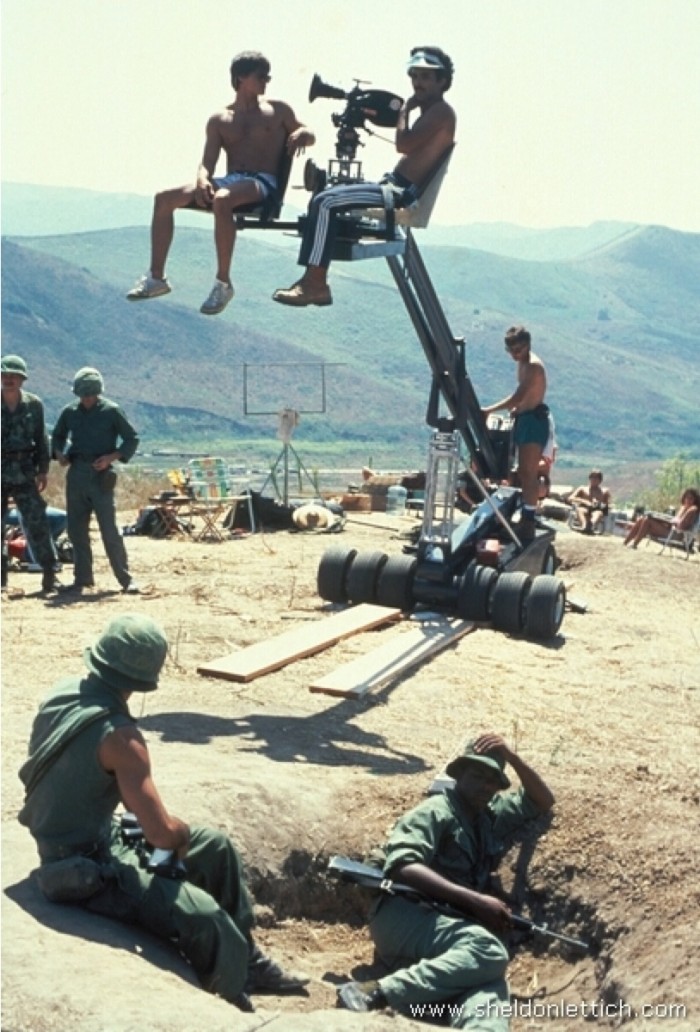 Blake Harris: For you to direct a Lone Wolf McQuade sequel starring Leon Isaac Kennedy and Chuck Norris?Sheldon Lettich: Yes, except that Chuck didn't want to do it. So we changed the title to Stryker's Force and we gave the character's different names. Then we needed someone different to play the Chuck Norris role. Jean-Claude had a three picture deal with Menahem at Cannon and Leon was very impressed with Jean-Claude; we all thought this was a match made in heaven. So Leon and I go and pitch this to Menahem. Let's put Jean-Claude in. He owes you two more movies! And Menahem was dead set against it.Blake Harris: Why?Sheldon Lettich: [Laughing at the memory] His word for Jean-Claude was "poison." He kept saying, "Jean-Claude is poison!" Poison! "This guy's never gonna make it," Menahem said. "He's a loser. he's a terrible actor. I want to make this movie, but I want you to make this movie with a real movie star and that's Michael Dudikoff." I remember him saying, "Michael Dudikoff is a movie star! Jean-Claude is poison!!"Blake Harris: [laughter]Sheldon Lettich: I tried to make my case. I told Menahem that the new cut of Bloodsport was great and I thought it was going to do really well. But Menahem said, "No, I'm not gonna release it in theaters. That movie's terrible; I'm putting it straight to video."Blake Harris: So what eventually changed Menahem's mind? Not about Jean-Claude per se, but about releasing Bloodsport in theaters?Sheldon Lettich: Menahem was persuaded by Samuel Hadida, who had released No Retreat, No Surrender in France (where it was called Karate Tiger) and been a fan of Jean-Claude's ever since then. So when he heard that there was another movie with Van Damme—and this time Van Damme was starring in it—Sammy was totally enthusiastic. And so he told Menahem, "Sell it to me and I'll release it theatrically." This got the people at Cannon re-thinking Bloodsport and they decided to do a test run on the west coast. California, Oregon and Washington. And apparently it did huge business. They were flabbergasted. It made its budget back just the first weekend on the west coast. And Jean-Claude's phone began ringing off the hook. He had an answering machine at the time that had a limit of, like, 50 messages. I remember us going back to his apartment and the thing was entirely full.Blake Harris: Did Menahem change his tune about Jean-Claude?Sheldon Lettich: Well, yes and no. Menahem started to realize what he had with Jean-Claude—and remember, he had two more movies with him—so he called us into his office and said, "We need to find our next movie for Jean-Claude." I remember there was a stack of scripts lining the wall—titles written on the spine—and I notice one script in particular. The Corsican Brothers. Menahem says, "Oh, Corsican Brothers, that's perfect for Jean-Claude!"Blake Harris: That's great. But I thought you said Menahem still wasn't fully sold on Jean-Claude.Sheldon Lettich: He wasn't. Because this is what happened next...
Blake Harris: For you to direct a Lone Wolf McQuade sequel starring Leon Isaac Kennedy and Chuck Norris?Sheldon Lettich: Yes, except that Chuck didn't want to do it. So we changed the title to Stryker's Force and we gave the character's different names. Then we needed someone different to play the Chuck Norris role. Jean-Claude had a three picture deal with Menahem at Cannon and Leon was very impressed with Jean-Claude; we all thought this was a match made in heaven. So Leon and I go and pitch this to Menahem. Let's put Jean-Claude in. He owes you two more movies! And Menahem was dead set against it.Blake Harris: Why?Sheldon Lettich: [Laughing at the memory] His word for Jean-Claude was "poison." He kept saying, "Jean-Claude is poison!" Poison! "This guy's never gonna make it," Menahem said. "He's a loser. he's a terrible actor. I want to make this movie, but I want you to make this movie with a real movie star and that's Michael Dudikoff." I remember him saying, "Michael Dudikoff is a movie star! Jean-Claude is poison!!"Blake Harris: [laughter]Sheldon Lettich: I tried to make my case. I told Menahem that the new cut of Bloodsport was great and I thought it was going to do really well. But Menahem said, "No, I'm not gonna release it in theaters. That movie's terrible; I'm putting it straight to video."Blake Harris: So what eventually changed Menahem's mind? Not about Jean-Claude per se, but about releasing Bloodsport in theaters?Sheldon Lettich: Menahem was persuaded by Samuel Hadida, who had released No Retreat, No Surrender in France (where it was called Karate Tiger) and been a fan of Jean-Claude's ever since then. So when he heard that there was another movie with Van Damme—and this time Van Damme was starring in it—Sammy was totally enthusiastic. And so he told Menahem, "Sell it to me and I'll release it theatrically." This got the people at Cannon re-thinking Bloodsport and they decided to do a test run on the west coast. California, Oregon and Washington. And apparently it did huge business. They were flabbergasted. It made its budget back just the first weekend on the west coast. And Jean-Claude's phone began ringing off the hook. He had an answering machine at the time that had a limit of, like, 50 messages. I remember us going back to his apartment and the thing was entirely full.Blake Harris: Did Menahem change his tune about Jean-Claude?Sheldon Lettich: Well, yes and no. Menahem started to realize what he had with Jean-Claude—and remember, he had two more movies with him—so he called us into his office and said, "We need to find our next movie for Jean-Claude." I remember there was a stack of scripts lining the wall—titles written on the spine—and I notice one script in particular. The Corsican Brothers. Menahem says, "Oh, Corsican Brothers, that's perfect for Jean-Claude!"Blake Harris: That's great. But I thought you said Menahem still wasn't fully sold on Jean-Claude.Sheldon Lettich: He wasn't. Because this is what happened next...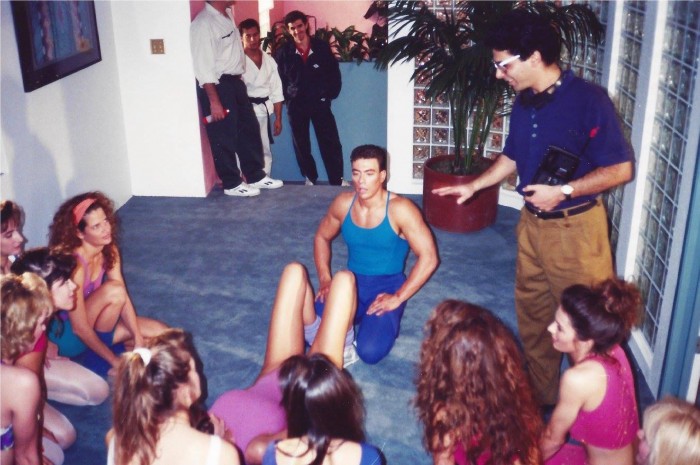
Part 4: There’s Only One Way a Revenge Film Can End
Sheldon Lettich: So they sent me to Paris and Corsica to do research and I re-wrote The Corsican Brothers, which I was going to direct. But then Menahem decided he didn't want to make the movie.Blake Harris: Why?Sheldon Lettich: In his words, I'm quoting, "Jean-Claude can't even play one character, how do you expect him to play two?" So he still didn't' have a lot of faith in Jean-Claude's acting abilities and decided not to make it. Anyways, they didn't pay me for doing my work on The Corsican Brothers and Delta Force 2. And they weren't returning phone calls. They were just being assholes.Blake Harris: That seemed to happen a lot at Cannon...Sheldon Lettich: Now Blake, I have never filed a lawsuit against anyone in this business, but I filed a lawsuit against those guys, against Cannon. And we ended up settling. In exchange for dropping the suit, they offered me the rights to The Corsican Brothers, which I readily agreed to because, by then, Jean-Claude was trying to get a project set up with Moshe Diamant. They were going to do a movie called Night of the Leopard but there were some problems with getting the script so now they needed a new one. I told Jean-Claude I might be getting the rights back to Corsican Brothers so he got Moshe on board. And so the ink was barely dry when I drove right over to Moshe's house and we signed a deal to do what became Double Impact.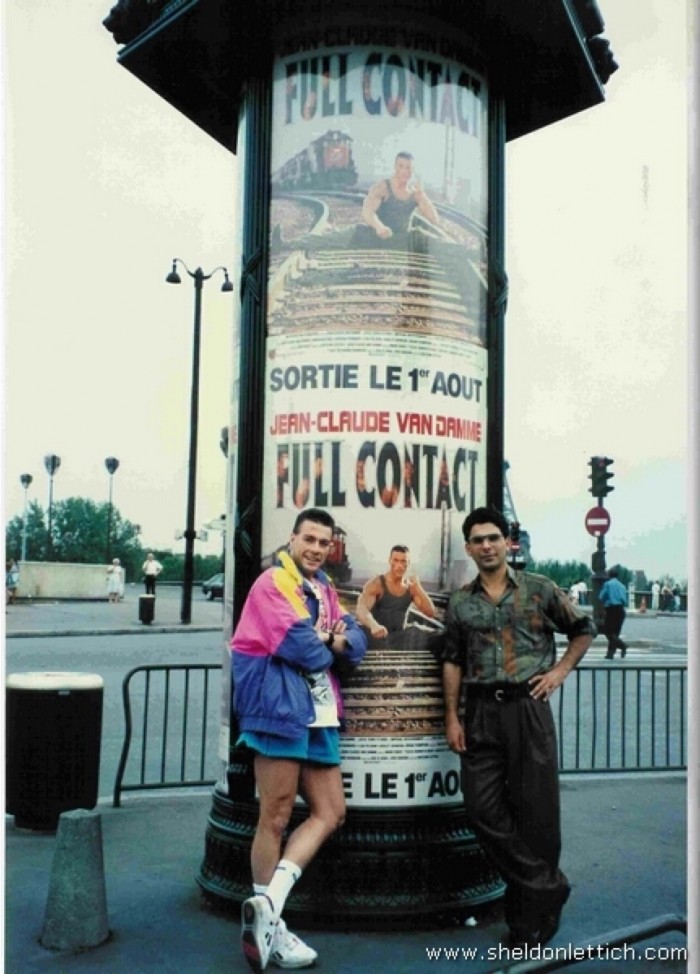 Blake Harris: From a technological standpoint, what were some of the biggest challenges with shooting two Jean-Claudes?Sheldon Lettich: The biggest challenges were that we were still using old technology. We did not use CGI, that was only just starting to become popular, so we had to do everything optically. We'd shoot one side of the screen with one of the brothers and then Jean-Claude would have to change his hair, make-up, wardrobe and we'd have a double standing in for another brother. It was very time-consuming and it was not easy to match things up with the optical printer, but I thought we did a pretty good job of that. The one thing that we did that made the film work so well is that we would do one "twinning shot" per scene. So there would be one shot where you would see both brothers in the same shot, kind of talking to one another and then all the other shots were either close-ups or over-the-shoulders done with a double. And the one twinning shot would sell it and it worked surprisingly well.
Blake Harris: From a technological standpoint, what were some of the biggest challenges with shooting two Jean-Claudes?Sheldon Lettich: The biggest challenges were that we were still using old technology. We did not use CGI, that was only just starting to become popular, so we had to do everything optically. We'd shoot one side of the screen with one of the brothers and then Jean-Claude would have to change his hair, make-up, wardrobe and we'd have a double standing in for another brother. It was very time-consuming and it was not easy to match things up with the optical printer, but I thought we did a pretty good job of that. The one thing that we did that made the film work so well is that we would do one "twinning shot" per scene. So there would be one shot where you would see both brothers in the same shot, kind of talking to one another and then all the other shots were either close-ups or over-the-shoulders done with a double. And the one twinning shot would sell it and it worked surprisingly well.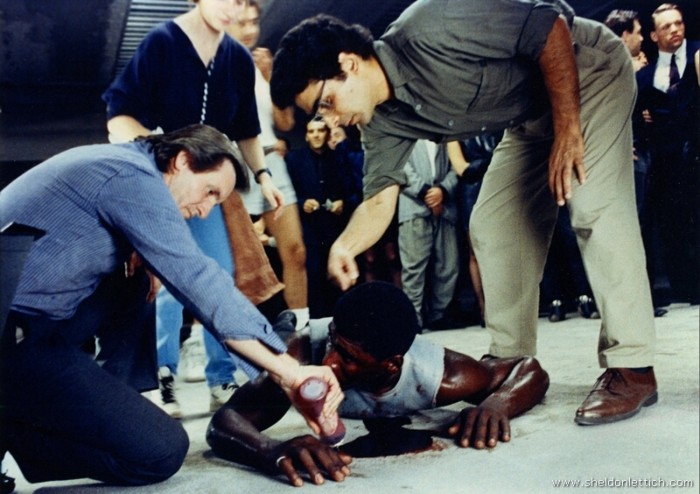 Blake Harris: The next movie you worked on with Jean-Claude was his directorial debut, The Quest [1996], but only in the capacity of script polishing. After directing Jean-Claude in Double Impact [1991] and Lionheart [1990] before that, was there any reason you didn't want to be involved with writing or directing?Sheldon Lettich: That was right after another movie I did called Only the Strong [1993] and I seemed to have a lot of other things going on. 20th Century Fox was high on Only the Strong and we all kind of expected that movie to do better than it did. So I thought that it was a good idea to keep my options open. Another thing was that had I co-directed The Quest with Jean-Claude, it might have contributed to a mistaken notion that Jean-Claude co-directed Lionheart and Double Impact with me. People would just assume that this is how it worked on those other two movies.Blake Harris: That makes sense.
Blake Harris: The next movie you worked on with Jean-Claude was his directorial debut, The Quest [1996], but only in the capacity of script polishing. After directing Jean-Claude in Double Impact [1991] and Lionheart [1990] before that, was there any reason you didn't want to be involved with writing or directing?Sheldon Lettich: That was right after another movie I did called Only the Strong [1993] and I seemed to have a lot of other things going on. 20th Century Fox was high on Only the Strong and we all kind of expected that movie to do better than it did. So I thought that it was a good idea to keep my options open. Another thing was that had I co-directed The Quest with Jean-Claude, it might have contributed to a mistaken notion that Jean-Claude co-directed Lionheart and Double Impact with me. People would just assume that this is how it worked on those other two movies.Blake Harris: That makes sense.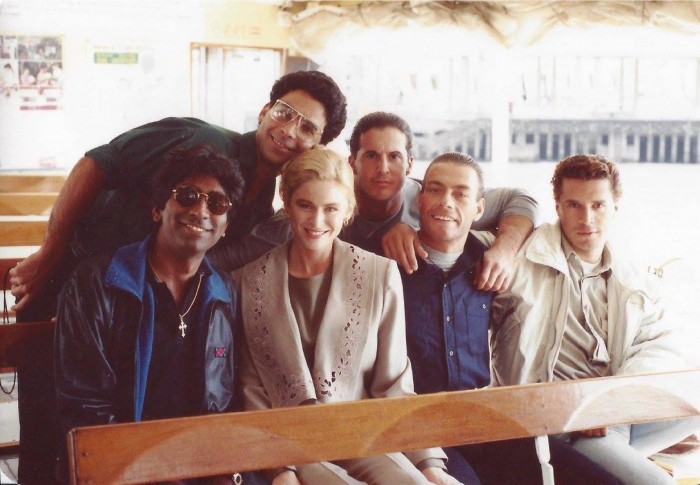 Sheldon Lettich: So I actually suggested to Jean-Claude that he use Frank Dux to write the script. By this time we knew that Frank was full of baloney with a lot of the stuff that he was saying about his life. But he had a great imagination, he had good ideas and he knew the martial arts world pretty well. So I said, "As long as you're going to have martial arts, why not get Frank?" One contribution I made to that script though was suggesting to Jean-Claude that he set the story in the past. Originally he'd planned for it to take place in present day, but I just thought that if you've got all of these fighters coming from all of the world like they did in Bloodsport—and basically he was just trying to do a different version of Bloodsport—that it would make things more interesting if, for example, this took place in the 1920s because then it becomes really difficult for all these fighters from different parts of the world to journey to this contest.Blake Harris: So Frank was originally hired to write the script for The Quest?Sheldon Lettich: Frank, and they actually put another writer on with Frank. And the two of them wrote this first draft. I'm not quite sure why they ended up hiring other writers to do a different version of it but they did and then that became a bone of contention later on where Frank ended up suing Jean-Claude and saying Jean-Claude had promised him some big chunk of the profit participation from the movie. Well you know how that ended up. Frank lost that case. But there was a Writer's Guild arbitration and the Writer's Guild ended up giving him a co-story credit.Blake Harris: Tell me a little bit about Legionnaire. How did that come about?Sheldon Lettich: Well, it's interesting. Back when I first started working with Stallone, my agent had told me to bring an idea to pitch him for a script. And I had read an article, in this magazine called M, about the French Foreign Legion. I did some research and realized I wanted to do a French Foreign Legion movie. So I go in to pitch my idea and his development executive, she was just flabbergasted when I showed her the magazine cover and told her about the idea. She said, "Wait a minute, I'll be right back" and then comes in with the same magazine. Apparently, Stallone had read the same article and he was thinking exactly the same thing. Except the version that Stallone had in mind was for a present day French Foreign Legion movie about two American buddies who enlist. So I ended up writing that script for him. In fact, that was the script for Stallone that Jean-Claude gave me some dialogue help with.Blake Harris: Ah, right after Bloodsport. Sheldon Lettich: Yeah. So flash forward ten years and I still had this notion of doing a film about the classic era of French Foreign Legion movie. You know, there's a certain romanticism to that. And were just digging this whole notion of Jean-Claude being a Legionnaire. Jean-Claude was doing movies for Columbia and they wanted him to bring them some ideas for movies and we brought that idea to them. We pitched it to them and they were kind of interested, but at the end of the day they decided not to do it. They wanted to stick with the Van Damme formula. Not go into the past. But then Ed Pressman, who had done Street Fighter, he wanted to do another movie with Jean-Claude. So we pitched him Legionnaire, gave him the treatment and Ed went for it.Blake Harris: You mentioned that Columbia passed on Legionnaire because it didn't "stick with the Van Damme formula." How conscious were you—and I don't mean with that movie, but in general—about that kind of formula. And was that something that you and Jean-Claude consciously tried to deliver (or to avoid)?Sheldon Lettich: We tried to do something atypical with Lionheart. In fact, Universal had some problems with what we did there because we did not want it to be a revenge movie. Jean-Claude's character comes to the US to help out his brother, not with anything like revenge or violence on his mind. Not what's typically expected, which was: Jean-Claude's going to find these motherf***ers and beat the s*** out of them. We liked the fact that we were able to do something different there. Then for Double Impact we thought: let's just go for it. Let's make a kickass, balls-to-the-wall revenge movie. And that's pretty much what Double Impact is...
Sheldon Lettich: So I actually suggested to Jean-Claude that he use Frank Dux to write the script. By this time we knew that Frank was full of baloney with a lot of the stuff that he was saying about his life. But he had a great imagination, he had good ideas and he knew the martial arts world pretty well. So I said, "As long as you're going to have martial arts, why not get Frank?" One contribution I made to that script though was suggesting to Jean-Claude that he set the story in the past. Originally he'd planned for it to take place in present day, but I just thought that if you've got all of these fighters coming from all of the world like they did in Bloodsport—and basically he was just trying to do a different version of Bloodsport—that it would make things more interesting if, for example, this took place in the 1920s because then it becomes really difficult for all these fighters from different parts of the world to journey to this contest.Blake Harris: So Frank was originally hired to write the script for The Quest?Sheldon Lettich: Frank, and they actually put another writer on with Frank. And the two of them wrote this first draft. I'm not quite sure why they ended up hiring other writers to do a different version of it but they did and then that became a bone of contention later on where Frank ended up suing Jean-Claude and saying Jean-Claude had promised him some big chunk of the profit participation from the movie. Well you know how that ended up. Frank lost that case. But there was a Writer's Guild arbitration and the Writer's Guild ended up giving him a co-story credit.Blake Harris: Tell me a little bit about Legionnaire. How did that come about?Sheldon Lettich: Well, it's interesting. Back when I first started working with Stallone, my agent had told me to bring an idea to pitch him for a script. And I had read an article, in this magazine called M, about the French Foreign Legion. I did some research and realized I wanted to do a French Foreign Legion movie. So I go in to pitch my idea and his development executive, she was just flabbergasted when I showed her the magazine cover and told her about the idea. She said, "Wait a minute, I'll be right back" and then comes in with the same magazine. Apparently, Stallone had read the same article and he was thinking exactly the same thing. Except the version that Stallone had in mind was for a present day French Foreign Legion movie about two American buddies who enlist. So I ended up writing that script for him. In fact, that was the script for Stallone that Jean-Claude gave me some dialogue help with.Blake Harris: Ah, right after Bloodsport. Sheldon Lettich: Yeah. So flash forward ten years and I still had this notion of doing a film about the classic era of French Foreign Legion movie. You know, there's a certain romanticism to that. And were just digging this whole notion of Jean-Claude being a Legionnaire. Jean-Claude was doing movies for Columbia and they wanted him to bring them some ideas for movies and we brought that idea to them. We pitched it to them and they were kind of interested, but at the end of the day they decided not to do it. They wanted to stick with the Van Damme formula. Not go into the past. But then Ed Pressman, who had done Street Fighter, he wanted to do another movie with Jean-Claude. So we pitched him Legionnaire, gave him the treatment and Ed went for it.Blake Harris: You mentioned that Columbia passed on Legionnaire because it didn't "stick with the Van Damme formula." How conscious were you—and I don't mean with that movie, but in general—about that kind of formula. And was that something that you and Jean-Claude consciously tried to deliver (or to avoid)?Sheldon Lettich: We tried to do something atypical with Lionheart. In fact, Universal had some problems with what we did there because we did not want it to be a revenge movie. Jean-Claude's character comes to the US to help out his brother, not with anything like revenge or violence on his mind. Not what's typically expected, which was: Jean-Claude's going to find these motherf***ers and beat the s*** out of them. We liked the fact that we were able to do something different there. Then for Double Impact we thought: let's just go for it. Let's make a kickass, balls-to-the-wall revenge movie. And that's pretty much what Double Impact is...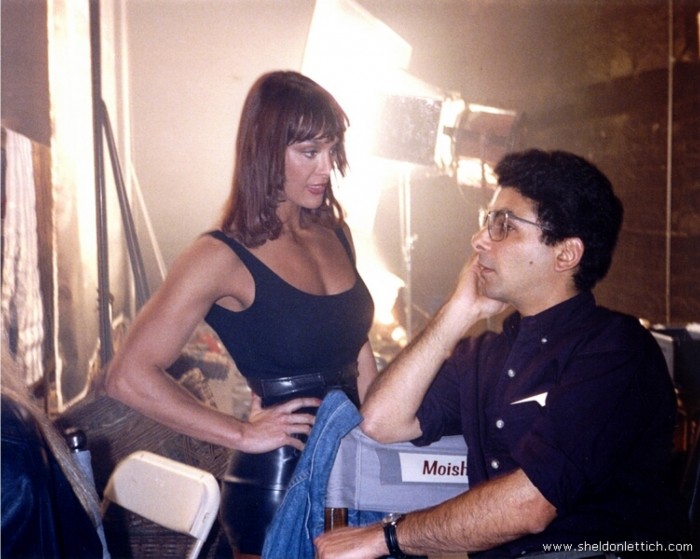 Blake Harris: I read online that you might be writing a sequel to Double Impact? Is that true?Sheldon Lettich: We were working on a sequel, but I just don't think it's going to go anywhere, unfortunately. Because there are so many issues with the rights to that project. Double Impact was financed, mostly, through pre-sales and, as it was structured, each of those companies also own a piece of the movie. So you have to get everyone on the same page and agree to make this movie. We have a treatment and we started writing the script. It would have been an expensive movie. We needed at least $20 million to do this thing right and it looked like it might happen, but it didn't. And at this point in time I don't think it's going to happen.Blake Harris: Ah, too bad. You said "we were working on a sequel." I assume you're referring to Jean-Claude. Are you guys still friendly?
Blake Harris: I read online that you might be writing a sequel to Double Impact? Is that true?Sheldon Lettich: We were working on a sequel, but I just don't think it's going to go anywhere, unfortunately. Because there are so many issues with the rights to that project. Double Impact was financed, mostly, through pre-sales and, as it was structured, each of those companies also own a piece of the movie. So you have to get everyone on the same page and agree to make this movie. We have a treatment and we started writing the script. It would have been an expensive movie. We needed at least $20 million to do this thing right and it looked like it might happen, but it didn't. And at this point in time I don't think it's going to happen.Blake Harris: Ah, too bad. You said "we were working on a sequel." I assume you're referring to Jean-Claude. Are you guys still friendly?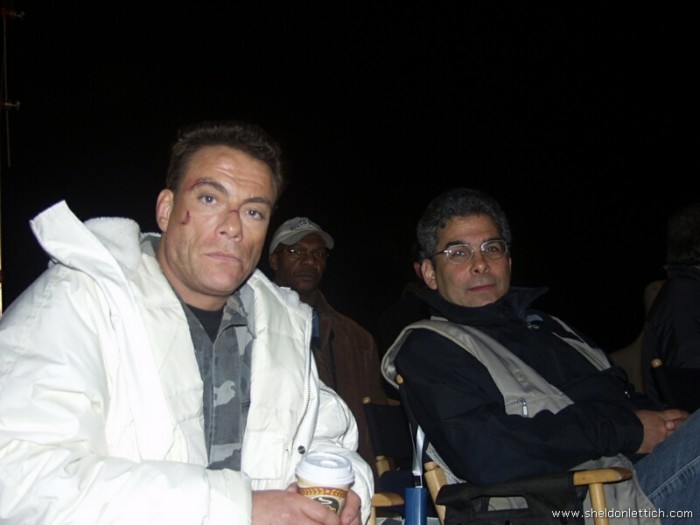 Sheldon Lettich: Oh yeah. Absolutely. I was just at his house for New Year's Eve. He was actually going to come to that Bloodsport screening in North Hollywood [referenced in our conversation with Frank Dux]. It was going to be a surprise appearance. I was going to say something like, "By the way, there's actually someone here who worked on the movie and he can maybe answer some of your questions" and he was going to come out and everyone would have went f***ing crazy. But when we found out Frank Dux was going to be there, we realized that this could go very, very bad, very quickly. And there'd be a bunch of people there with phones to record it, so we don't want this to happen.Blake Harris: Speaking of that screening, Frank had mentioned that you were crushed. Nobody clapped or wanted to have their picture taken with you. I should mention that within hours of the piece begin published, we received several unsolicited e-mails from people who had been there and had a significantly different memory of the screening.Sheldon Lettich: [laughing] I'll let you readers draw their own conclusions. But here's a photo from the screening, so I guess at least one person wanted to have their photo taken with me. Do you recognize the guy all the way on the right? The one who's putting up his "dux?"
Sheldon Lettich: Oh yeah. Absolutely. I was just at his house for New Year's Eve. He was actually going to come to that Bloodsport screening in North Hollywood [referenced in our conversation with Frank Dux]. It was going to be a surprise appearance. I was going to say something like, "By the way, there's actually someone here who worked on the movie and he can maybe answer some of your questions" and he was going to come out and everyone would have went f***ing crazy. But when we found out Frank Dux was going to be there, we realized that this could go very, very bad, very quickly. And there'd be a bunch of people there with phones to record it, so we don't want this to happen.Blake Harris: Speaking of that screening, Frank had mentioned that you were crushed. Nobody clapped or wanted to have their picture taken with you. I should mention that within hours of the piece begin published, we received several unsolicited e-mails from people who had been there and had a significantly different memory of the screening.Sheldon Lettich: [laughing] I'll let you readers draw their own conclusions. But here's a photo from the screening, so I guess at least one person wanted to have their photo taken with me. Do you recognize the guy all the way on the right? The one who's putting up his "dux?"